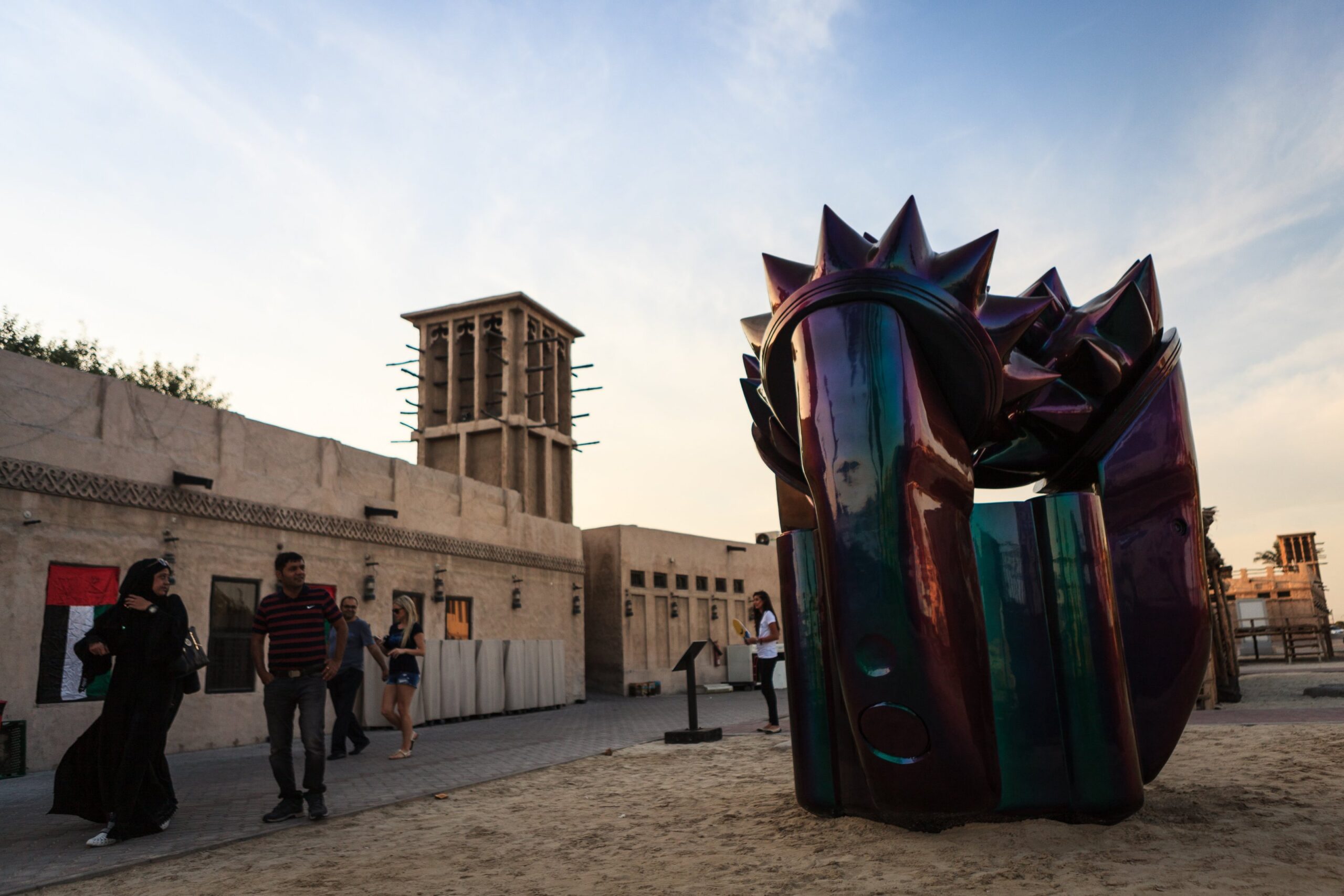
‘Alien Technology’ by Monira Al-Qadiri, part of the AFAC ‘InVisible’ public art commission on display in Dubai until March
The arts in challenging places
Oussama Rifahi explains how the Arab Fund for Arts and Culture supports artists working in challenging situations with very limited resources.
The Arab Fund for Arts and Culture (AFAC) is an initiative that supports contemporary artists and cultural institutions from the Arab region through an annual granting programme. This covers literature, cinema, music, performing arts and visual arts as well as research, training and regional events. We also offer special programmes that respond to emerging needs, such as our Documentary Program in collaboration with Ford Foundation’s JustFilms, the Arab Documentary Photography Program co-funded by the Prince Claus Fund and in partnership with the Magnum Foundation, and the Arab Novel Writing Program in collaboration with Al-Mohtaraf.
AFAC was launched in 2007 by a group of prominent Arab philanthropists, businessmen and women and cultural activists in order to address the lack of support for contemporary artists of the Arab region. We are able to protect our independence by maintaining a broad base of support, from Arab and international contributors alike. Our aim is to stimulate creativity, critical thinking and freedom of expression among emerging Arab artists as well as established ones. We do this by offering a sustainable financial and professional resource for contemporary arts and culture projects, by promoting wider visibility and audience engagement and by advocating for cultural philanthropy for the Arab region and from the Arab region.
We support Arab artists wherever they reside, as well as cultural institutions dealing with topics relevant to the Arab region
We support Arab artists wherever they reside, as well as cultural institutions dealing with topics relevant to the Arab region. About 80% of our support is region-based and 20% international. Examples of UK-based beneficiaries are Palestinian visual artist Larissa Sansour, Iraqi filmmaker Maysoon Pachachi, Yemeni filmmaker Sara Habib Ishaq, the Shubbak Festival on Contemporary Arab Culture, Brunel Institute for Contemporary Middle Eastern Music, the London Palestine Film Festival and the Palestine Festival for Literature.
Our application forms are available online in Arabic and English and are genre-specific. We have various open calls throughout the year and appoint independent jury committees to evaluate applications based on four criteria: quality, innovation, relevance to the Arab world and cost. We make announcements twice a year in July and November. About 100 grants are disbursed annually, with a total budget of US$2.5m. ‘Grantees’ are expected to complete their projects within two years of receiving their grants. Additionally, we help promote grantees and share the news of their progress and critical reviews.
We have supported over 700 projects to date and our next open call will be in February for the categories of visual arts and performing arts. Our future plans include showcasing award-winning AFAC-supported films in different cities across the Arab region and promoting the visibility of our grantees through strategic partnerships with festivals, forums and specialised media outlets.
We believe that our impact is profound. Our grantees have often said that they would have had no one else to turn to, especially those artists from Syria, Yemen, Tunisia and Libya who are working in challenging situations with very limited resources. Because we are Arab-based and Arab-run, there is a genuine connection with on-the-ground realities. We are sensitive to the histories that abound in the region and to the challenges of current situations. Our outreach visits and field trips have allowed us to promote inter-Arab collaboration and to overcome the sense of isolation that many Arabs face, while also allowing us to include a wide diversity of voices within our scope of beneficiaries.
While most of our projects are location-specific and particular to their communities, many of our grantees have also gone on to receive international acclaim and awards at prominent festivals across the world. For example, first-time documentary filmmaker Nadine Michael Salib from Egypt won the FIPRESCI Award at the Abu Dhabi Film Festival and Special Jury mention in the First Appearance Competition at the International Documentary Film Festival in Amsterdam for her film ‘Mother of the Unborn’. And ‘Tashari’ by Inaam Kachachi was nominated for the Arabic Booker Prize.
Oussama Rifahi is Executive Director of the Arab Fund for Arts and Culture.
www.arabculturefund.org
Join the Discussion
You must be logged in to post a comment.